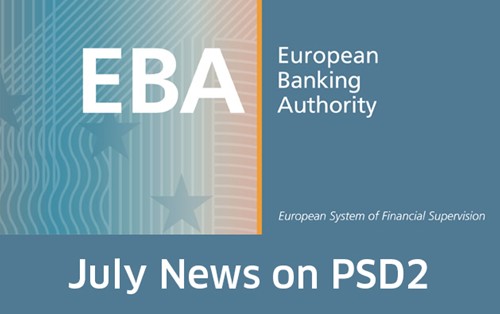July was a pretty busy month for EBA in terms of PSD2 updates.
No wonder, actually, as implementation is due in less than 6 months.

7 July – Final Guidelines on Professional Indemnity Insurance (PII) under PSD2
These Guidelines, applicable from 13 January 2018, address the criteria on how to stipulate the minimum monetary amount of the professional indemnity insurance (PII) or other comparable guarantee for payment initiation services (PIS) and account information services (AIS).
Companies that intend to carry out these services will need PII cover or a comparable guarantee as a prerequisite to be granted authorization, thus strengthening the liability regime governing the interactions between the different actors involved in electronic payment transactions.
11 July – Final Guidelines on Authorization and Registration under PSD2
These Guidelines focus on the information to be provided by applicants intending to obtain authorization as payment and electronic money institutions as well as to register as account information service providers (AISP) under PSD2.
The detailed documentation that applicants are required to submit to national competent authorities for the purpose of authorization or registration varies depending on the type of service(s) an applicant intends to provide, as: payment institutions, account information service providers, electronic money institutions, or competent authorities.
24 July – Consultation on the Future EBA Register under PSD2
The public consultation, which runs until 18 September 2017, addresses the draft regulatory technical standards (RTS) and implementing technical standards (ITS) on the EBA electronic central register, which respectively set requirements on the development, operation and maintenance of the register and the information to be contained in it.
The register will include information about payment and electronic money institutions, account information service providers, their agents and branches, which are authorized or registered in the Member States.
Its purpose is to ensure transparency of the operation of these institutions in the EU, enhance cooperation between the competent authorities in the Member States and ensure a high level of consumer protection.









